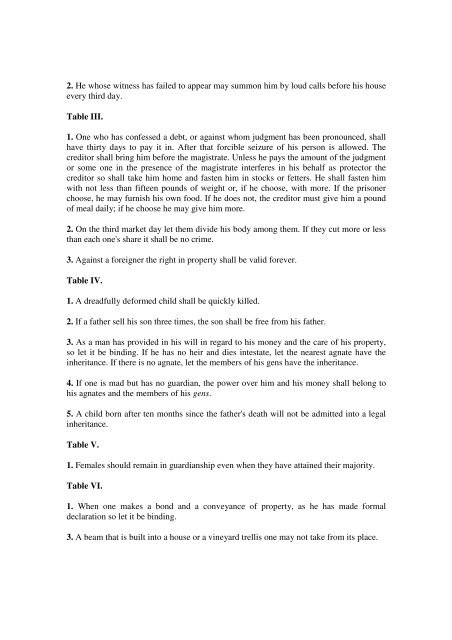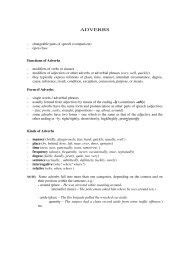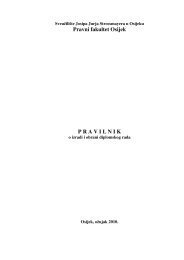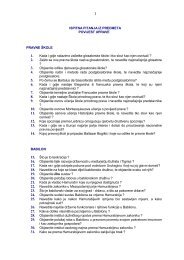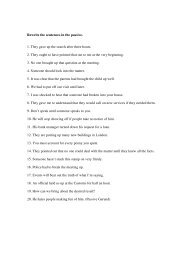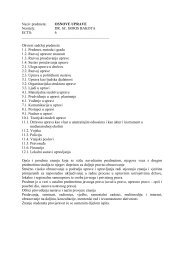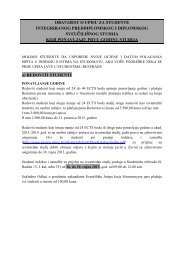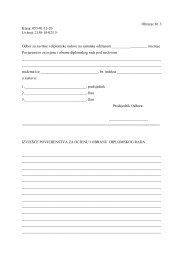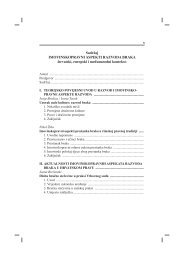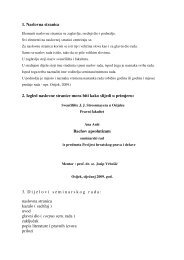ANCIENT ROMAN LAW
ANCIENT ROMAN LAW
ANCIENT ROMAN LAW
You also want an ePaper? Increase the reach of your titles
YUMPU automatically turns print PDFs into web optimized ePapers that Google loves.
2. He whose witness has failed to appear may summon him by loud calls before his house<br />
every third day.<br />
Table III.<br />
1. One who has confessed a debt, or against whom judgment has been pronounced, shall<br />
have thirty days to pay it in. After that forcible seizure of his person is allowed. The<br />
creditor shall bring him before the magistrate. Unless he pays the amount of the judgment<br />
or some one in the presence of the magistrate interferes in his behalf as protector the<br />
creditor so shall take him home and fasten him in stocks or fetters. He shall fasten him<br />
with not less than fifteen pounds of weight or, if he choose, with more. If the prisoner<br />
choose, he may furnish his own food. If he does not, the creditor must give him a pound<br />
of meal daily; if he choose he may give him more.<br />
2. On the third market day let them divide his body among them. If they cut more or less<br />
than each one's share it shall be no crime.<br />
3. Against a foreigner the right in property shall be valid forever.<br />
Table IV.<br />
1. A dreadfully deformed child shall be quickly killed.<br />
2. If a father sell his son three times, the son shall be free from his father.<br />
3. As a man has provided in his will in regard to his money and the care of his property,<br />
so let it be binding. If he has no heir and dies intestate, let the nearest agnate have the<br />
inheritance. If there is no agnate, let the members of his gens have the inheritance.<br />
4. If one is mad but has no guardian, the power over him and his money shall belong to<br />
his agnates and the members of his gens.<br />
5. A child born after ten months since the father's death will not be admitted into a legal<br />
inheritance.<br />
Table V.<br />
1. Females should remain in guardianship even when they have attained their majority.<br />
Table VI.<br />
1. When one makes a bond and a conveyance of property, as he has made formal<br />
declaration so let it be binding.<br />
3. A beam that is built into a house or a vineyard trellis one may not take from its place.


